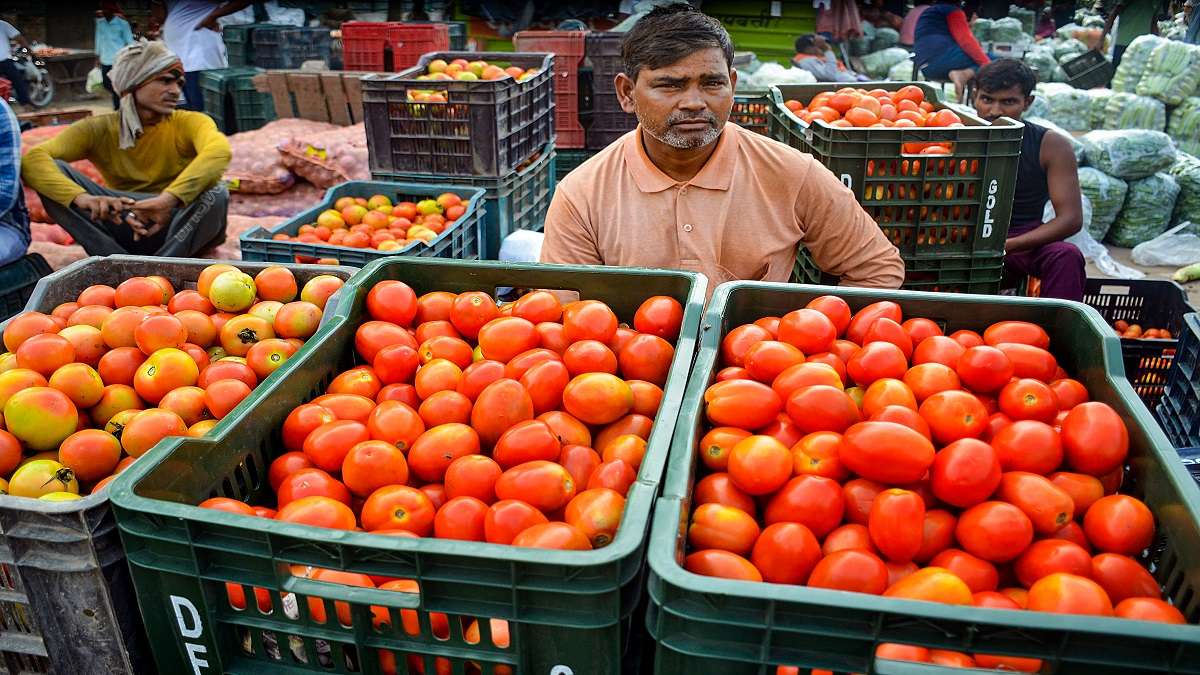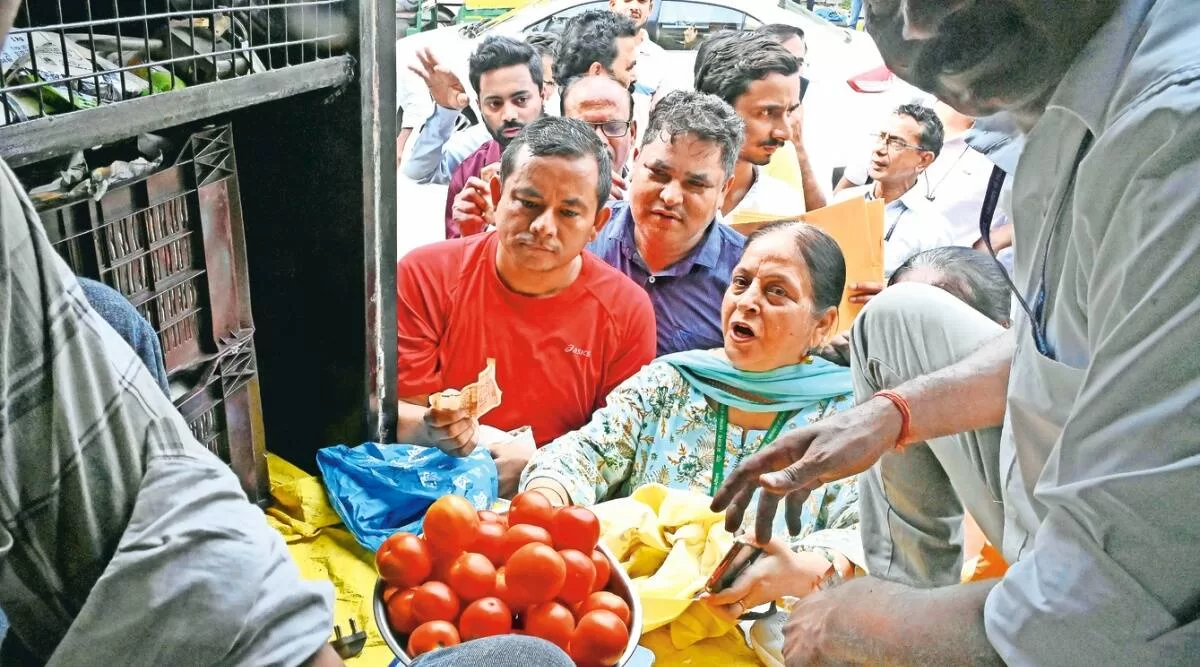The relentless surge in tomato prices across India has created a significant burden for consumers, who are already grappling with rising grocery bills. With the cost of tomatoes reaching an exorbitant Rs 224 per kg in several parts of the country, households are feeling the strain of escalating vegetable prices. The predicament is further exacerbated by the perceived negligence of the government in effectively addressing this critical issue.

The tomato price hike, which began with prices at around Rs 40 per kg in June, has unfolded into a full-blown crisis. In the first week of July, prices surged to an average of Rs 100 per kg, and subsequently skyrocketed to an astonishing average of Rs 200 per kg due to heavy rainfall affecting the supply from various regions. This unprecedented surge has left consumers reeling, as a key ingredient in Indian cuisine becomes increasingly unaffordable.
The government attributes the price increase to the monsoon season, which has created logistical challenges and led to increased transit losses. However, critics argue that the government’s response to the crisis has been lackluster, with inadequate measures to stabilize prices and ensure sufficient supply of tomatoes to the market. The negligence of the authorities in proactively addressing the situation has further fueled public dissatisfaction.
Inflationary concerns loom large as the rising prices of tomatoes threaten to push the consumer price index (CPI) beyond the Reserve Bank of India’s (RBI) upper tolerance limit of 6 percent. While the current retail inflation stands at 4.81 percent, experts warn that without substantial changes in potato and onion prices, the average inflation in Q2 FY24 could reach 5.8 percent year-on-year. This would have severe implications for household budgets, as potatoes, onions, and tomatoes form the cornerstone of Indian kitchens.
The government’s inaction in effectively tackling the tomato price hike adds to the frustration among consumers. The lack of timely intervention, comprehensive policies, and proactive measures to address the underlying causes of the vegetable price surge has left households grappling with financial strain and uncertainty.

While cooperative organizations such as NCCF and NAFED have been mandated to sell tomatoes at affordable rates, it is seen by many as a short-term solution to a systemic problem. Consumers express concerns about the long-term sustainability of such interventions and emphasize the need for comprehensive measures that address the core issues affecting vegetable prices, including agricultural productivity, supply chain efficiency, and market linkages.
In a bid to make tomatoes more affordable, NCCF has launched the sale of tomatoes via mobile vans in the Delhi-NCR region. The tomatoes will be sold at a discounted rate of Rs 90/kg, offering some respite to consumers who have been struggling with the surging prices. Additionally, NCCF has established sales points at its office in Rajnigandha Chowk, Noida, and will deploy mobile vans in Greater Noida and other locations.
Public dissatisfaction with the government’s approach to the tomato price crisis is palpable. Consumer advocacy groups and civil society organizations have been vocal in their criticism, calling for immediate action, increased investment in agriculture, and transparent policies to ensure fair prices for both producers and consumers. They stress the urgency of the situation and demand greater accountability from the government in addressing the plight of the common citizen.
As the tomato price hike persists and the government’s response remains sluggish, Indian households continue to bear the brunt of skyrocketing vegetable prices. The nation awaits a proactive and comprehensive approach that tackles the root causes of the crisis, restores stability to the market, and provides relief to consumers. Until then, families across the country are left with no choice but to navigate this challenging period with resilience, while hoping for a more responsible and effective response from the authorities.
